Flutter in Flanders: Taking bets at the Classics
A day with the bookies at Kuurne-Brussel-Kuurne
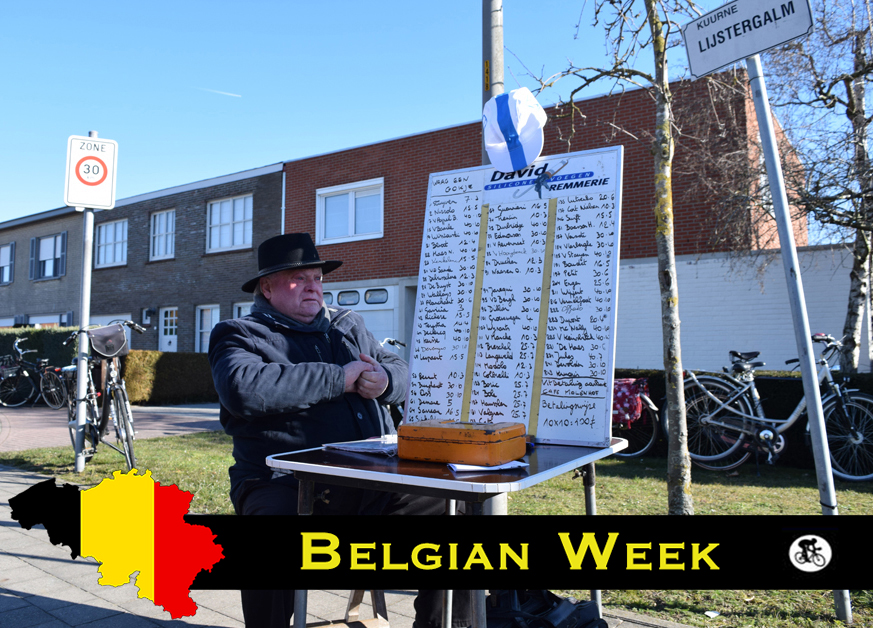
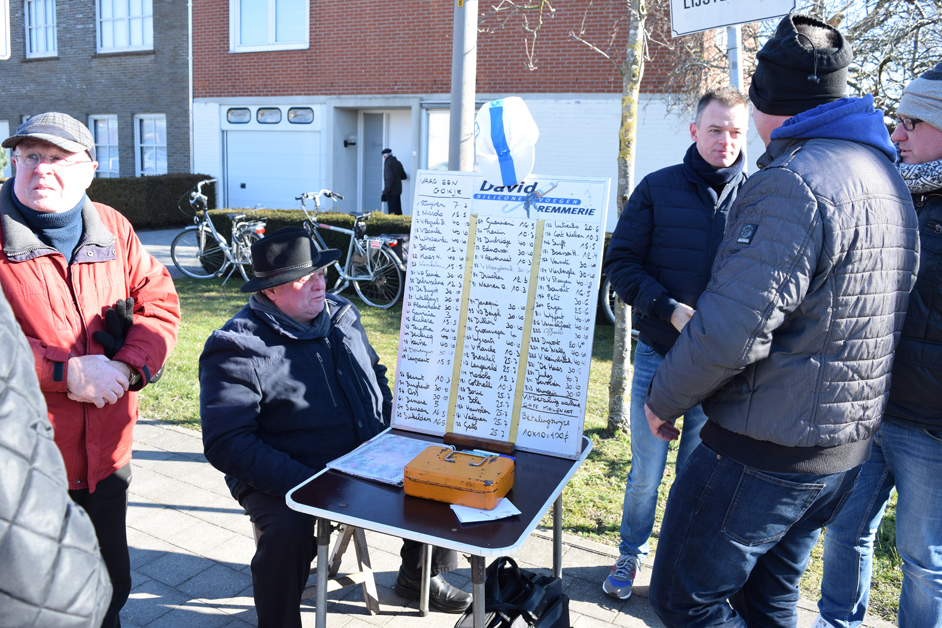
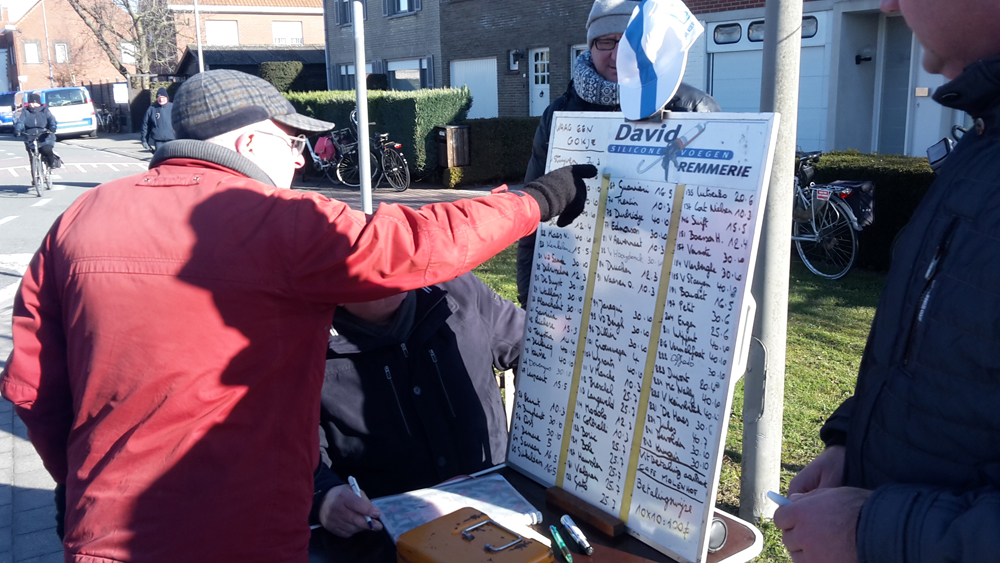
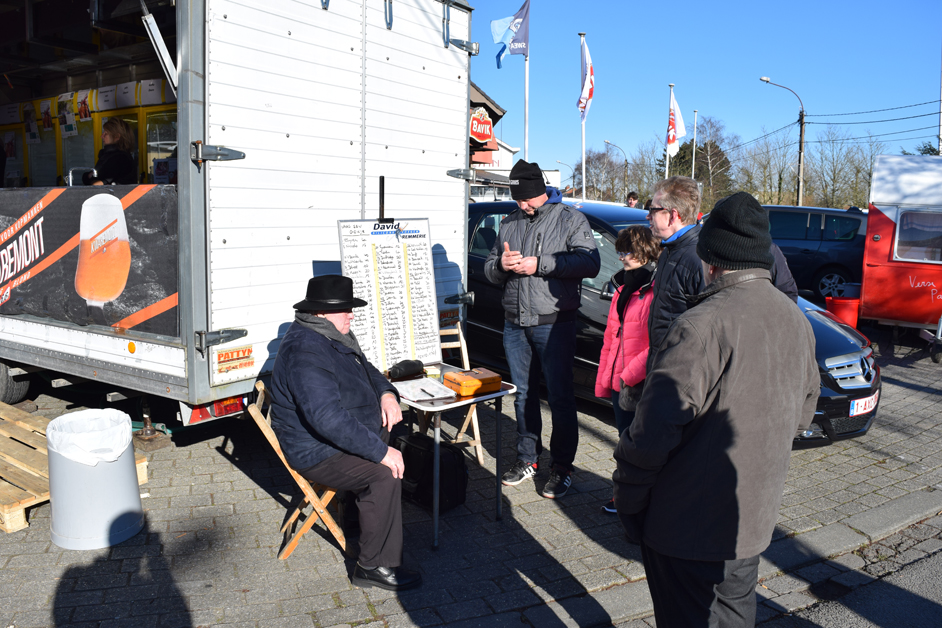
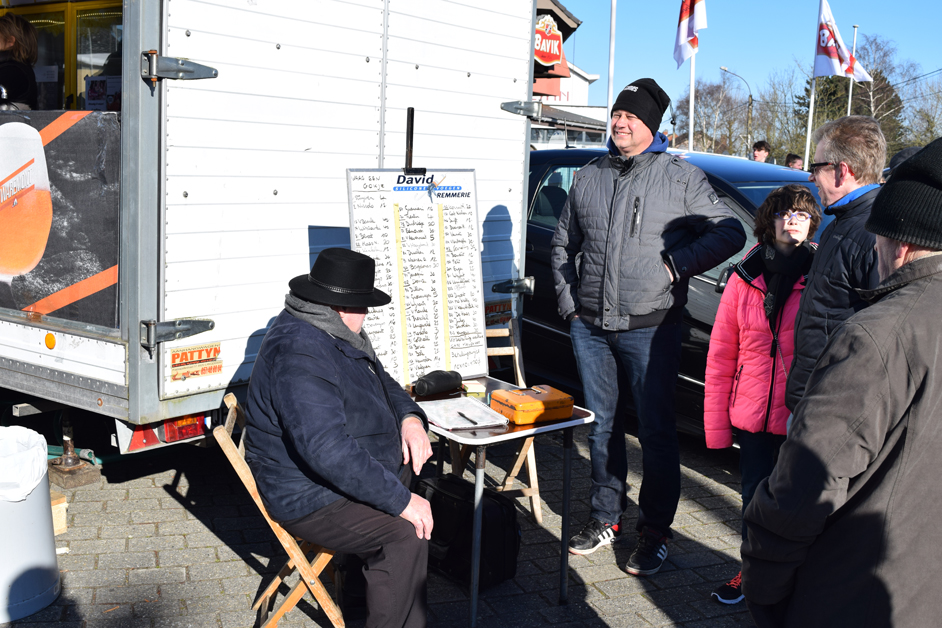
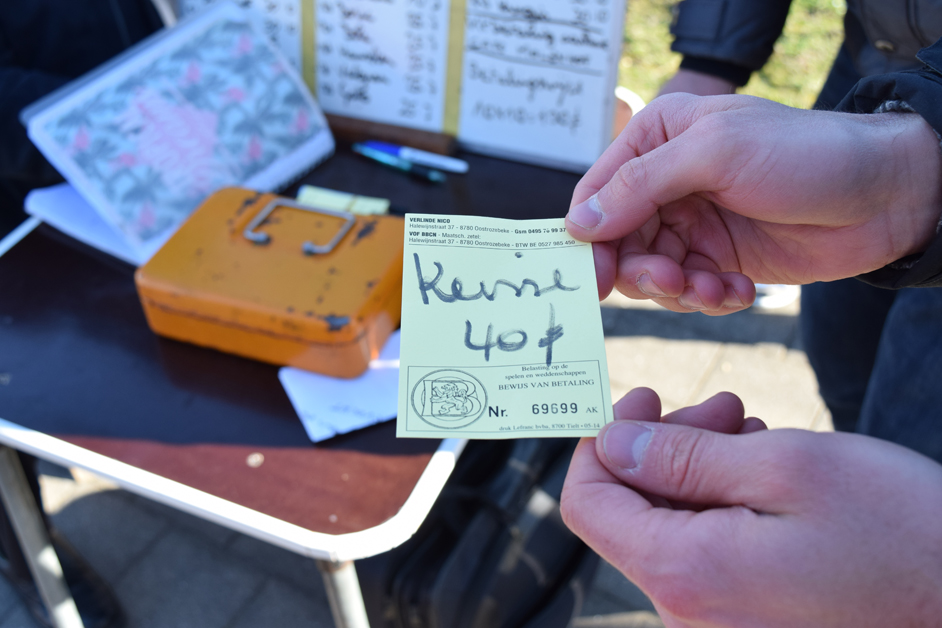
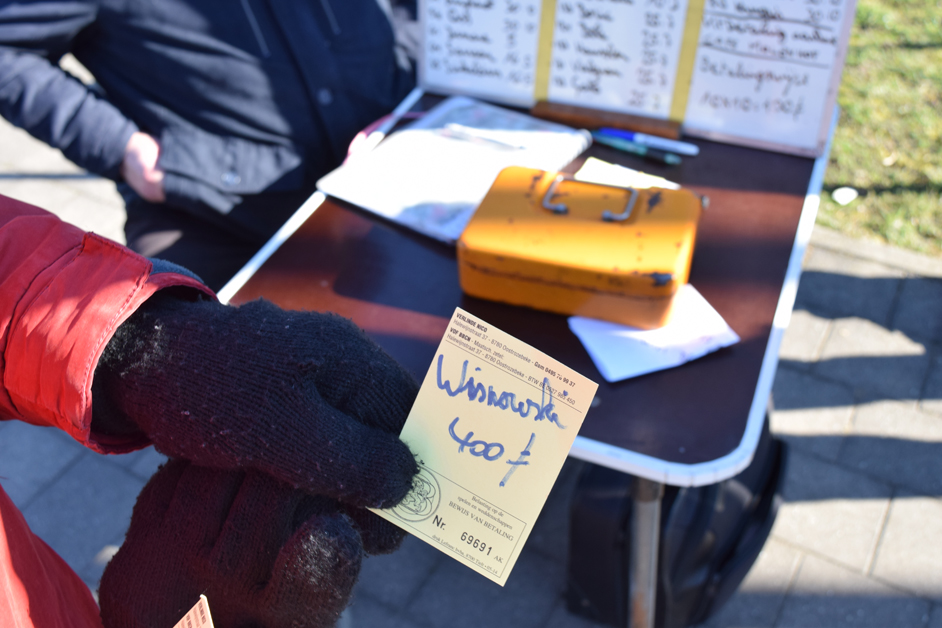
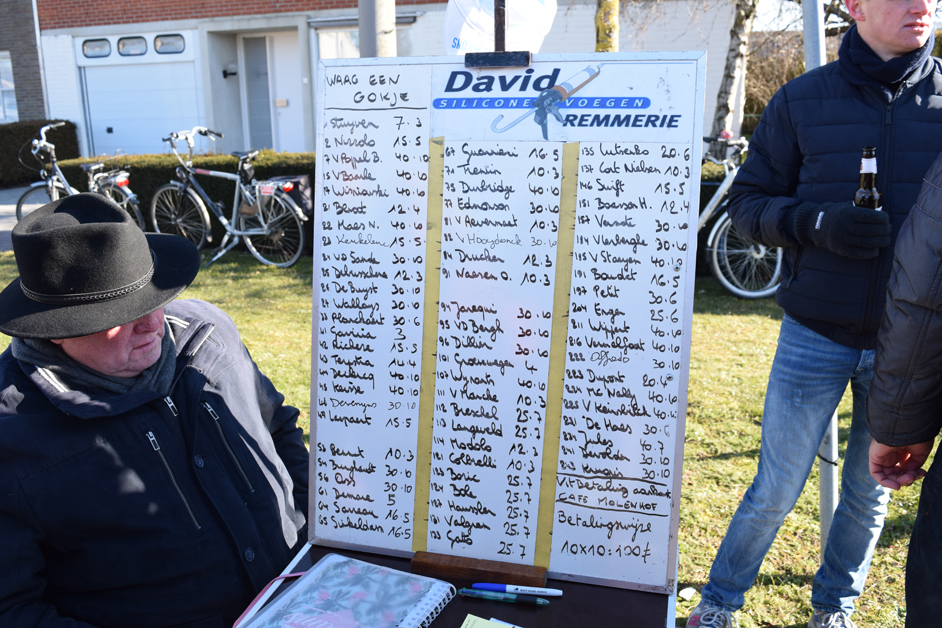
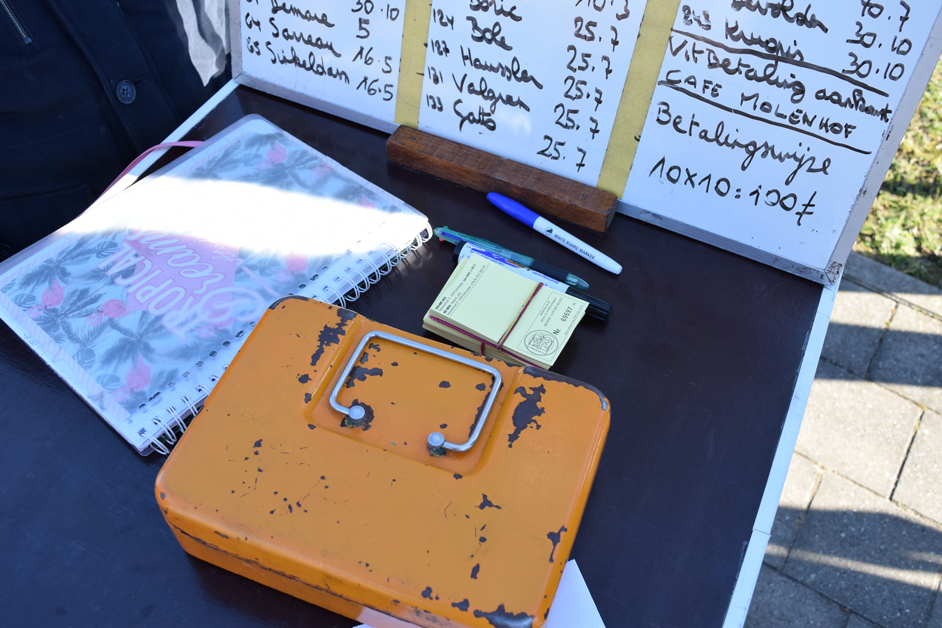
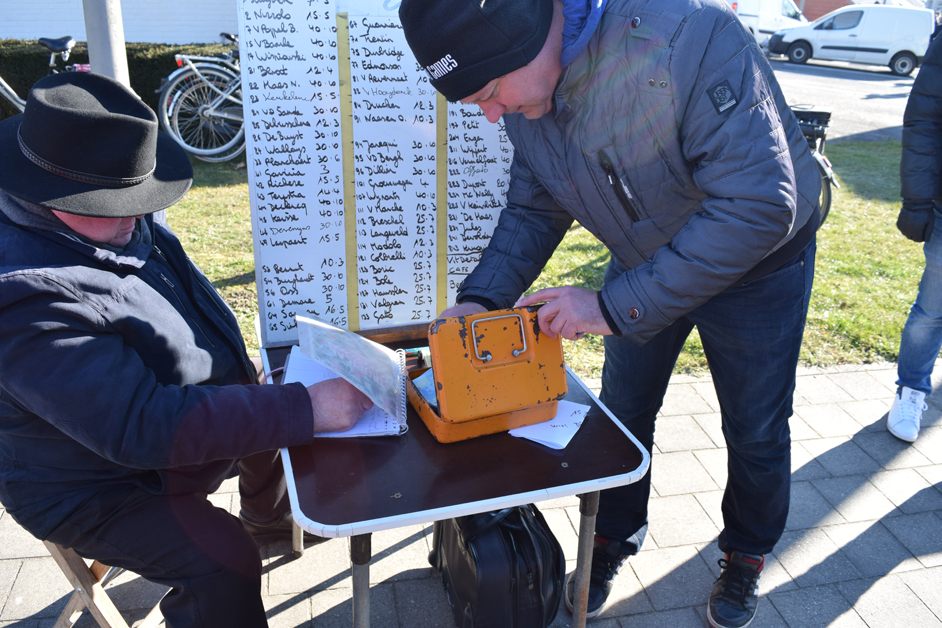
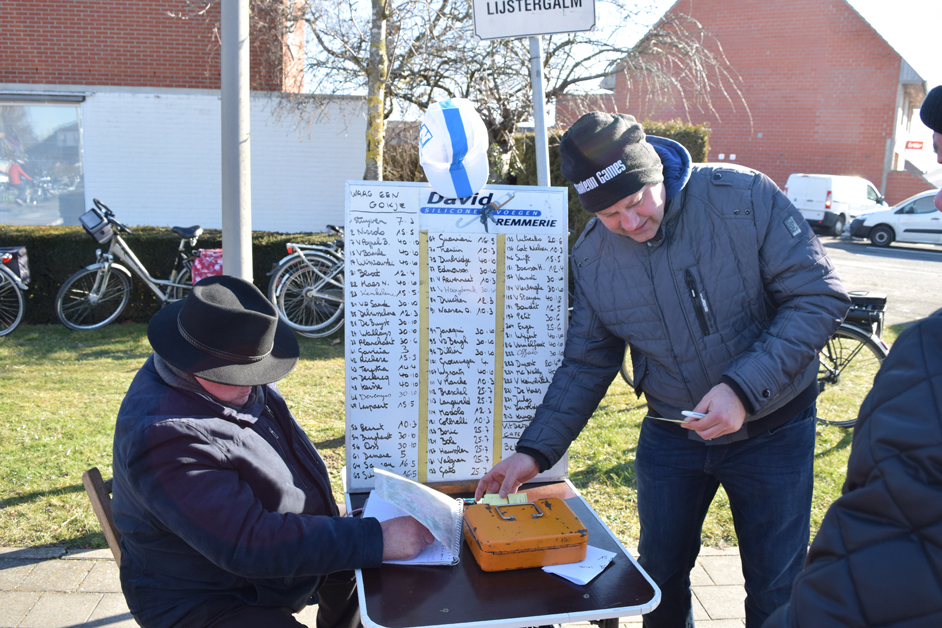
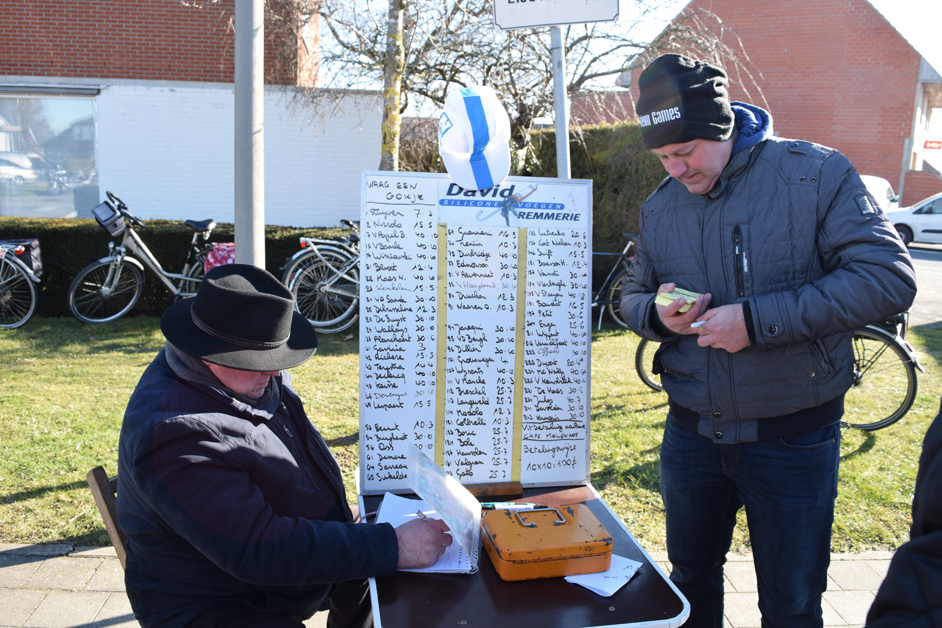
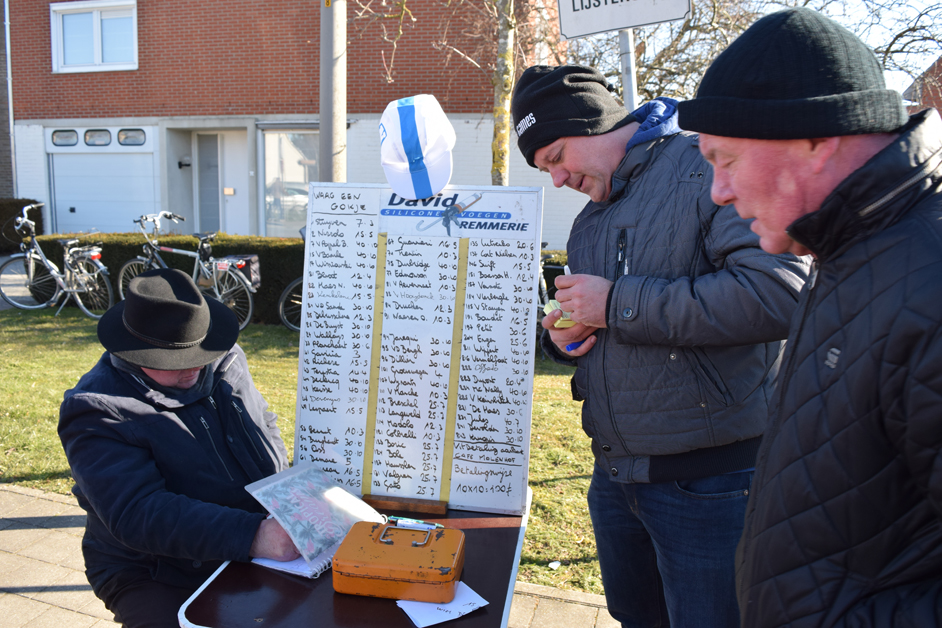
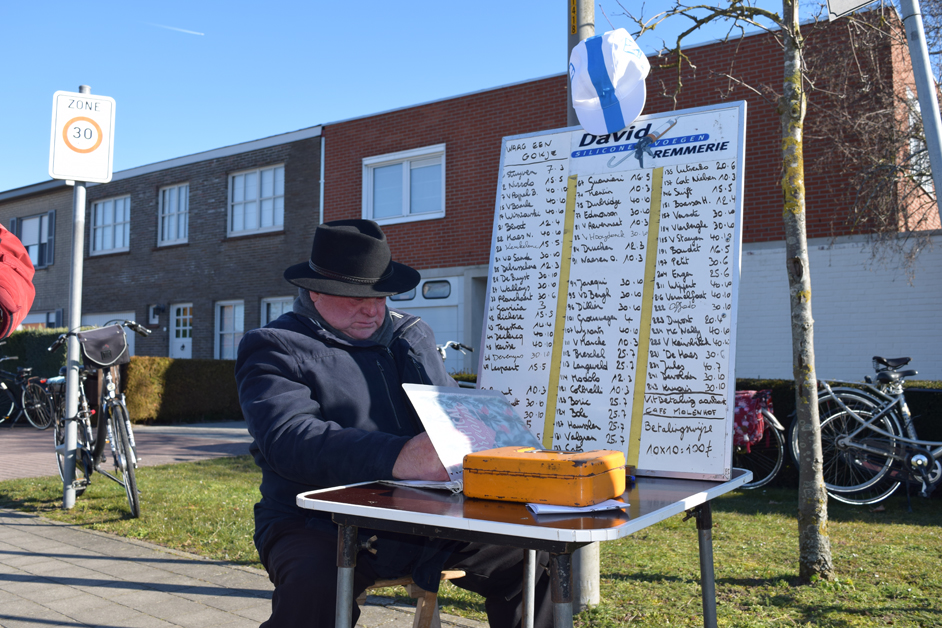
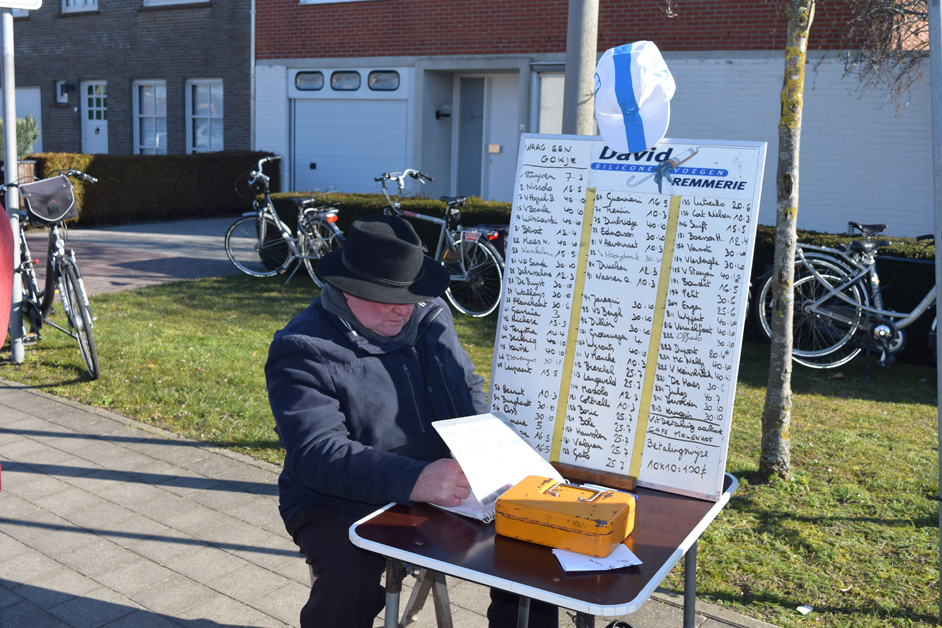
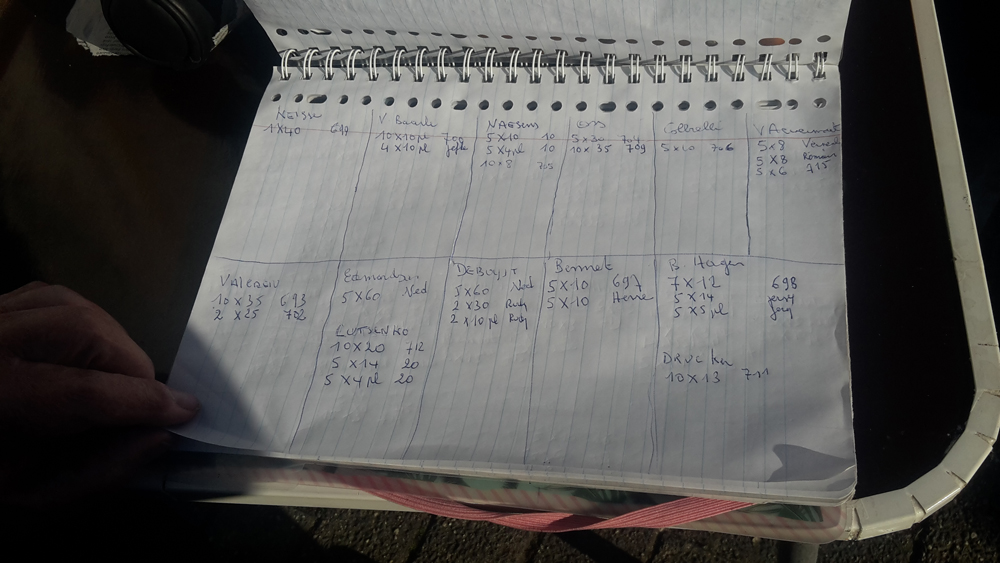
This article is part of 'Belgian Week' on Cyclingnews, a special run of features to celebrate the start of the Classics. For all our Belgian Week content click here.
Sunday morning in Kuurne. It's bitingly cold but the skies are clear and a breath of fresh air cleanses the lungs. The small town in West Flanders is still shaking off its slumber but the cafés are starting to fill up and a hum of anticipation is steadily growing. It's race day. Nico Verlinde and Walter Desamber unpack the car and carry their equipment to the corner of the road by the start line. Desamber sets down a wooden stool and takes out an A4 pad while Verlinde unfolds a square table, places a tatty metal box on top, and fixes a whiteboard in place.
Welcome to the bookies.
The global gambling industry has evolved at an alarming rate in recent years thanks to the advent of the internet and, later, smartphones. Never has there been such an indulgent offering of markets to wager on, and never has it been easier for us to part with our cash – 'Tap tap boom', as Betfair insist on reminding us.
Seeing Verlinde and Desamber's set-up, then, is like stepping back in time.
There are no sophisticated algorithms calculating the odds – just brainpower. No digital beaming of the selections across your devices – just a whiteboard and a marker pen. No virtual transactions – just cash and paper slips that you can touch. Even the men, themselves – Desamber with his trilby hat and weathered features, quietly making a record of each bet, and Verlinde the charismatic front man shooting the breeze with the punters – are like throwbacks to the past.
Modern cycling can seem clinical at times, but for all the carbon fibre and watts and beats-per-minute, there is a purity to bike racing in Flanders that endures. Alongside the beer, the frits, the retro jerseys, the cobbles and bergs, Verlinde and Desamber are part of that fabric.
Get The Leadout Newsletter
The latest race content, interviews, features, reviews and expert buying guides, direct to your inbox!

"We've been doing this for 20 years," Verlinde says proudly. "We started in 1998."
Asked if he remembers their first race, there's no hesitation.
"The Keizer de Nieuwelingen! It's a race for juniors, guys who are 15 to 16 years old. We were there with a table and whiteboard. Wim de Vocht won it. He was also later a professional rider, but only for two or three years and then he stopped. We made €125 that day, or the equivalent – back then it wasn't Euros, it was Belgian Francs."
Little has changed since that day – they even use the very same table and whiteboard – but the operation has expanded to cover more than 50 races each year.
"Now we do nearly every race in Flanders," says Verlinde. "Normally we do every weekend, Saturday and Sunday, during the spring, and even Wednesdays. At the Tour of Flanders we're there on the Oude Kwaremont with the table and board. Gent-Wevelgem, we go to the start and then the finish. Then in the summer we do small races, the amateurs."
The duo are one of five bookmakers who operate on a similar basis, though they claim to go to more races than any of the others. Come the Tour of Flanders, of course, they'll all be out, and there's plenty of business to go around.
"It's a tradition in Belgium from many years ago, that people bet on the races," says Verlinde. "In Flanders, the people know that, they do that. But in Limburg, the other side of the country, they don't know that, the people don't understand. It's not in their culture.
"Here in West Flanders it's part of the culture that you bet on the races."
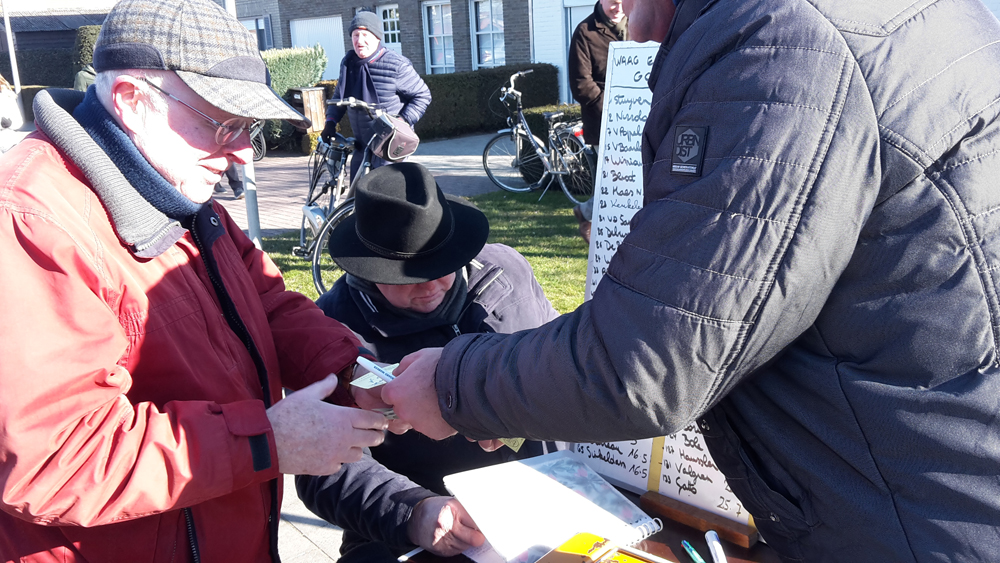
The streets fill up and the first bets come in ahead of Kuurne-Brussel-Kuurne. For every person that places one there are dozens more who stop to study the odds.
A bunch sprint is the most likely outcome for the duo, so Fernando Gaviria, Dylan Groenewegen, and Arnaud Démare are down as joint favourites at 4/1.
"For every race, we look at the results, the parcours, the weather. We try to know everything about every rider," says Verlinde. "We read anything, all the newspapers, Cyclingnews as well of course."
One of the quirks of the operation is the range of the market. The board includes half the field, with odds offered from the biggest names right up to the likes of Mark McNally at 40/1. Custom bets are also available on request.
"We fill the board with many riders. You never know if someone has a feeling, or has someone as their favourite, then they can play on who they want."
A local man lumps €10 on Lucasz Wizniowswki at 40/1, swayed by the Pole's surprise runner-up finish at Omloop Het Nieuwsblad the previous day, and announces that the beers will be on him. Most, however, are plumping for Gaviria, and Desamber grabs Verlinde's attention to let him know how many bets they've already taken on the Colombian. It's quickly decided his price should be cut to 3/1.
"It's best for us if the favourite doesn't win," Verlinde explains. "For us the best would be someone like… McNally! But hey, sometimes when a rider wins and their odds are big, all it takes is one person to bet on him, and we lose out."

All about the in-play
The riders roll out of Kuurne at 11.45 a.m. Nico and Walter pack up their things and make for the finish line. As is advertised on the whiteboard, winnings can be collected from the Café Molenhof, but they won't be escaping the cold and waiting for the outcome. Instead, they set up again outside the bar and prepare for the busiest part of their day.
'In-play' betting, where you bet in real-time, with the odds fluctuating as the event unfolds, has come to dominate the sports betting market in recent years. As a mildly disturbing Ray Winstone floating head growls in Bet 365's adverts, 'It's all about the in-play'.
And so it is for Verlinde and Desamber, who constantly change their odds according to the race situation, taking bets right up until the final few kilometres. They've been offering in-play betting since before the spread of mobile phones, let alone apps. The throwbacks, it turns out, were actually ahead of their time.
The riders hit the Oude Kwaremont and Yves Lampaert raises the pace. Soon a group of 21 riders has established itself and is pulling away. With some big names, including fast finishers like Démare and Sacha Modolo, it could go all the way.
Quickly, Verlinde begins noting down every rider in the group. For some he needs a glimpse of a dossard or a TV graphic but others he can identify from their profile and pedal stroke. One-by-one, he underlines their race number on the whiteboard, scrubs out their original price, and replaces it with a new, slashed, figure. Names like Truls Korsaeth and Maarten Wynants are still relative longshots, but Démare and Modolo become joint favourites at 3/1.
For Verlinde, this is one of the most enjoyable parts of the 'job'.
"At the Tour of Flanders last year, we had Philippe Gilbert at 8/1 at the start of the race. When they went away on the Muur, we put him to 5/1. When he went on the Kwaremont, 3/1. 25km to go, 2/1, then evens. It was crazy.”
Sometimes things slip through the net. Verlinde still catches the odd rider he hadn't accounted for several kilometres after the move has gone, and he misses Gaviria's exit from the race as he opens a beer for a friend. The most ruthlessly slick professional operation, it ain't, but that only adds to the charm.
Jasper Stuyven goes clear from the break and hits the finishing circuit with a lead of one minute. His odds plummet to 2/1 but the race comes back together with 18km remaining and it's back to the whiteboard. The bets steadily continue to trickle in.

When the fun stops, stop
The saying goes that the bookmaker always wins. The exponential rise of sports betting firms and the proliferation of their advertising would certainly suggest the bookies aren't exactly short of our cash – just hungry for more of it.
For Verlinde and Desamber, however, this isn't simply a pursuit of other people's money.
"This is a hobby for us," says Verlinde. "Making money is obviously the goal, but it's not really the goal, you know?"
Verlinde makes a living through a frits van he runs with his wife, while Desamber is a retired lorry driver. They have to invest in their hobby before they can even start to think about profit, with a betting licence costing €3,600 for three years. They're able to split it with the four other bookmakers, but they still effectively start each season with a deficit of €240.
Generally, they make that back up, even if Verlinde is quick to dismiss the notion of the bookies always coming out on top.
"That's not true. Some you win, some you lose. Sometimes you’re up 10 times in a row, but then sometimes you lose five times in a row. You never know. It's a lucky job. For example, if somebody puts €20 at 30/1, that's €600 back. If you've taken €400 that day you must pay €600, and you've lost €200. We hope they play on certain guys and that it all evens out, but you never know."
Verlinde and Desamber will take a few hundred euros in bets each time they're out. The biggest races are more popular with punters but there are also more bookies so the numbers stay relatively stable. At Kuurne, they take 65 bets for a total of more than €500.
"When the people play, they bet €5, €10, maybe €20. Not big amounts. Just small bets. The biggest bet we've had was maybe €100, but that was from a group putting their money together. We don't get people wanting to make big bets. They do it for fun."
Enjoyment seems to be at the heart of this gambling experience, which comes as a tonic in an industry where the big companies pretend to be your mate but treat you as a walking pound sign. We are force-fed the nefarious message that 'it matters more when there's money on it', but at what point does the betting cease to be an accessory to the sporting spectacle, and the sporting spectacle itself become the accessory to the betting?
The waters don't seem so murky here.
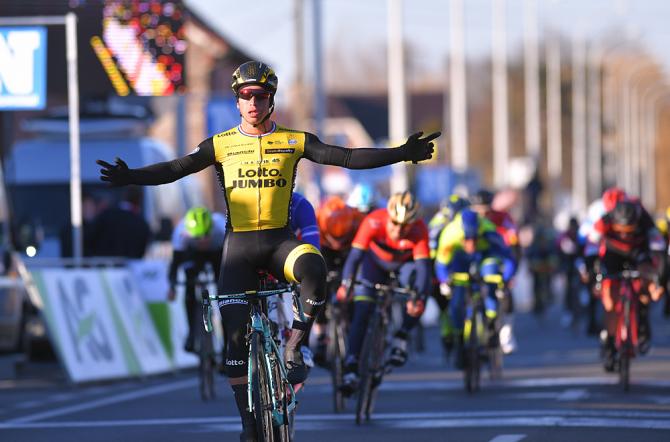
Pay out time
Dylan Groenwegen, 4/1 with Verlinde and Desamber at the start of the day, wins Kuurne-Brussel-Kuurne in a bunch sprint. A three-man group comes close to upsetting the odds but Julien Vermote, the last survivor, is unceremoniously passed just 200 metres shy of the line.
Vermote is crestfallen, and there's a tinge of disappointment for Verlinde, too.
"Groenewegen winning was not so good for us – he was one of the favourites. In the end, we made €50, but had Vermote hung on we would have made €500."
Verlinde and Desamber hand out most of the contents of their money box before packing the table and whiteboard into the car and heading off.
"Normally we say if we get €100 back home, that's a good day for us. But whatever the final figure, we have our amusement, our hobby. We have fun."
Perhaps these bookmakers do always win.
Patrick is a freelance sports writer and editor. He’s an NCTJ-accredited journalist with a bachelor’s degree in modern languages (French and Spanish). Patrick worked full-time at Cyclingnews for eight years between 2015 and 2023, latterly as Deputy Editor.
